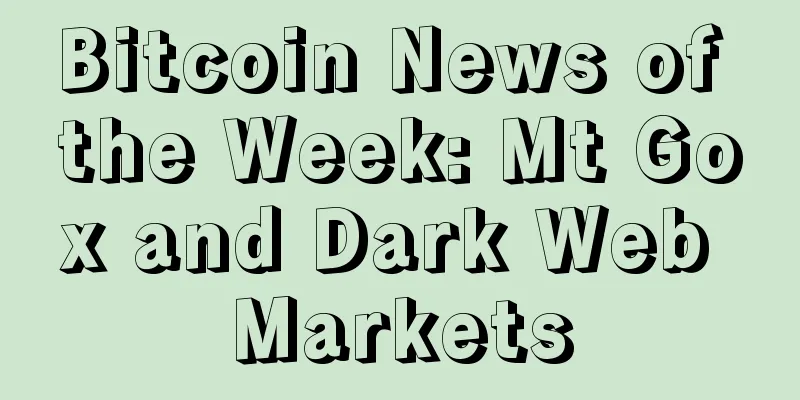Bitcoin News of the Week: Mt Gox and Dark Web Markets

|
Despite some high-profile developments in the Bitcoin and blockchain industries this summer, mainstream media outlets have mostly been repeating the same old stories. That said, the notoriety these reports have generated is still worth noting. This week, the New Yorker and Rolling Stone also reported on Bitcoin, exploring the ongoing battle over Bitcoin forks and the fall of Bitcoin exchange Mt Gox. Elsewhere, darknet markets and controversial international marketplaces took the remainder of the spotlight. A Bitcoin ProtagonistThe disgraced bitcoin exchange Mt Gox is the subject of an exposé in the latest edition of Rolling Stone magazine, the second time the US magazine has written about the bitcoin industry following its February report on Silk Road. In the final section, author David Kushner, in typical Rolling Stone style, comments on Mt Gox CEO Mark Karpeles:
Kushner further described Kepler as “the accidental king of Bitcoin,” continuing:
In addition to mentioning the early success of the bitcoin exchange, the author also quoted Tyler Winklevoss as saying that "Mt Gox was the most powerful and influential exchange in the bitcoin space." Kushner also added:
There have been new developments on this story, and some of the content described in this article may be outdated. For example, the article emphasizes that Keplers believes he will have a chance to make a comeback in the digital currency market. “Whether he is found guilty or not guilty, he hopes to learn from Mt Gox and create a more secure form of digital cash,” the authors wrote. Darknet MarketsThis week, mainstream media reported on a clear uptick in illegal Bitcoin-related activity, with some journalists making a big deal about the temporary closure of darknet marketplace Agora. The first and most widely cited report, written by Andy Greenberg of Wired, alluded to Agora’s predecessor, Silk Road, when he wrote:
Bitcoin trading comes to Iranian rialGenerally speaking, it is difficult for a new Bitcoin exchange to get much attention from the mainstream media. However, the launch of the Iranian trading platform BTXCapital is an exception. The exchange, which went online on August 24, is not the first Bitcoin exchange in the Middle East, but its establishment has unexpectedly won the attention of the global community. The exchange’s application services company, Draglet, told International Business Times that BTXCapital’s efforts in the region could fall through at any time. "From a Western perspective, this is a cool way to spread bitcoin," said Ganesh Jung, the company's chief executive. "We don't have any legal issues, but the Iranian government can block such services." Although the company’s description was very cautious, the mainstream media’s reports still came with their own “BGM”, even the two websites, the venture and IBTimes, exaggerated the headlines of the reports as usual, emphasizing that Iran is a “huge untapped market” and that the exchange may be able to unlock Bitcoin. ---- |
<<: Canadian Pension Fund OMERS Ventures Plans to Invest in Bitcoin Industry
>>: Blockchain technology could save global companies $550 billion in payment costs each year
Recommend
Coin Zone Trends: Bitcoin Price Trends Based on Big Data This Week (2017-03-27)
The overall market is weak and short-term risk co...
Where is the tear mole? What is the meaning of tear mole?
I believe many people have heard of tear moles. A...
What is the face of a man who is lucky for his wife? Physiognomy tells you which men are lucky for their wives
Nowadays, many women want to find a man who can b...
Simple face recognition standard
In traditional physiognomy, the earliest books in...
How to read a man's face
A person’s fate, character, fortune, etc. can be ...
The life line of the poor has fluctuations
For a person, if he wants to know what his develo...
William: Why are the miners so confident?
Editor's note: This article comes from: Willi...
Exclusive: Sichuan and Yunnan power systems crack down on direct power supply mining farms
Wu said blockchain has learned exclusively that t...
What is a waist dimple? Waist dimple facial features analysis
Many friends want to know what dimples on the wai...
Bitcoin price support may be at $6,000, otherwise miners cannot make a profit?
Two well-known cryptocurrency traders, Brian Stut...
What kind of face shape indicates an unlucky woman? What kind of face shape indicates an unlucky woman?
Around us, some people are very blessed and every...
What does it mean for a woman to have a "川" shape on her hands?
What is the fate of a woman with her hands in the...
Understanding the new 7nm Antminer T15 in one article
Equipped with Bitmain's first 7nm chip, the A...
Six questions to Canaan Creative’s Sales Director Chen Feng: The most powerful mining machine in the A11 series has been released. Is it time to upgrade the mining machine?
In October 2019, Canaan released the latest Bitco...
The first Bitcoin ETF has appeared. What should you pay attention to in the new investment method?
According to CNNMoney, Bitcoin enthusiasts have b...









